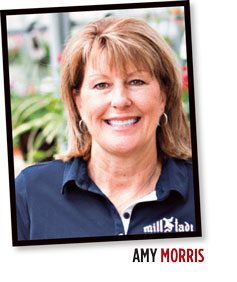10/1/2023
A Wake-up Call for Baby Boomers
Amy Morris

As society evolves, so do the values and attitudes that shape our approach to work. One of the most notable shifts can be observed in the distinct work ethics between Baby Boomers and their children. Baby Boomers, born between 1946 and 1964, grew up in a world defined by post-war economic growth, while their children (Generation X, Millennials or Generation Z) have come of age in an era characterized by rapid technological advancements and changing social norms. These generational differences have given rise to diverse work ethics that reflect the unique experiences and influences each group has encountered.
The Baby Boomer generation witnessed a period of unprecedented economic expansion, which influenced their approach to work. Many Baby Boomers were raised with the idea that job stability and company loyalty were paramount. The conventional 9:00-to-5:00 workday was the norm and most aspired to work for a single employer throughout their career. This generation was marked by strong dedication to their work, often prioritizing consistency and commitment over flexibility.
The work ethic of Baby Boomers was deeply rooted in their experiences of economic struggle, as many of them grew up during times of scarcity and uncertainty. This instilled in them the value of hard work and the importance of saving for the future. As a result, they often put in long hours and were willing to make personal sacrifices to achieve their career goals.
The children of Baby Boomers, spanning multiple generations, have grown up in a vastly different world. The advent of technology and the rise of the Internet have transformed the way people interact, communicate and work. This has led to a divergence in work ethics, as the younger generations have been exposed to new opportunities and challenges that their parents’ generation could not have fathomed.
One of the most prominent differences in work ethics can be seen in the value placed on work-life balance. The younger generations have prioritized flexibility, seeking roles that allow them to balance their professional and personal lives more effectively. Unlike their parents, they’re often willing to switch jobs, or even careers, if it means finding better work-life integration.
Technology has enabled remote work—a concept that was virtually nonexistent during the prime of the Baby Boomer generation. Younger workers have embraced remote and digital work models, valuing the freedom to work from anywhere and the ability to harness technology for improved productivity. This shift has blurred the lines between work and personal life, challenging traditional notions of the workday.
Another significant contrast lies in the rise of the entrepreneurial spirit among the younger generations. The children of Baby Boomers are more likely to explore freelance work, start their own businesses or engage in the gig economy. Unlike their parents, they’re less concerned with staying in a single job for life, and are more focused on pursuing their passions and generating multiple income streams.
Collaboration and a sense of purpose are also defining features of the younger generation’s work ethic. Millennials and Generation Z workers often seek roles that align with their values and allow them to make a meaningful impact on the world. This desire for purpose-driven work has prompted companies to adapt their organizational cultures to attract and retain younger talent.
The differences in work ethics between Baby Boomers and their children are not a matter of right or wrong, but rather a reflection of the evolving landscape of work and society. While Baby Boomers developed their work ethic in an era of economic growth and stability, the younger generations have navigated the challenges and opportunities presented by technological advancements and changing norms.
As generations continue to interact in the workplace, it’s essential to recognize and appreciate these differences. Organizations can harness the strengths of each generation by creating diverse and inclusive work environments that accommodate various work ethics. By fostering open communication and mutual understanding, we can bridge the generation gap and leverage the unique contributions of each group to drive innovation and growth in the modern workforce.
As a Baby Boomer, I’ve recently learned to let go and spend the much-needed time with my family that I’ve robbed of them in the past. It was a hard bridge to cross, but now that I’m on the other side I do realize I can live life to the fullest and have my work life continue to have a positive effect on my company. GT
Amy Morris is Vice President of N.G. Heimos Greenhouses in Millstadt, Illinois. She can be reached at Amorris@ngheimos.com.